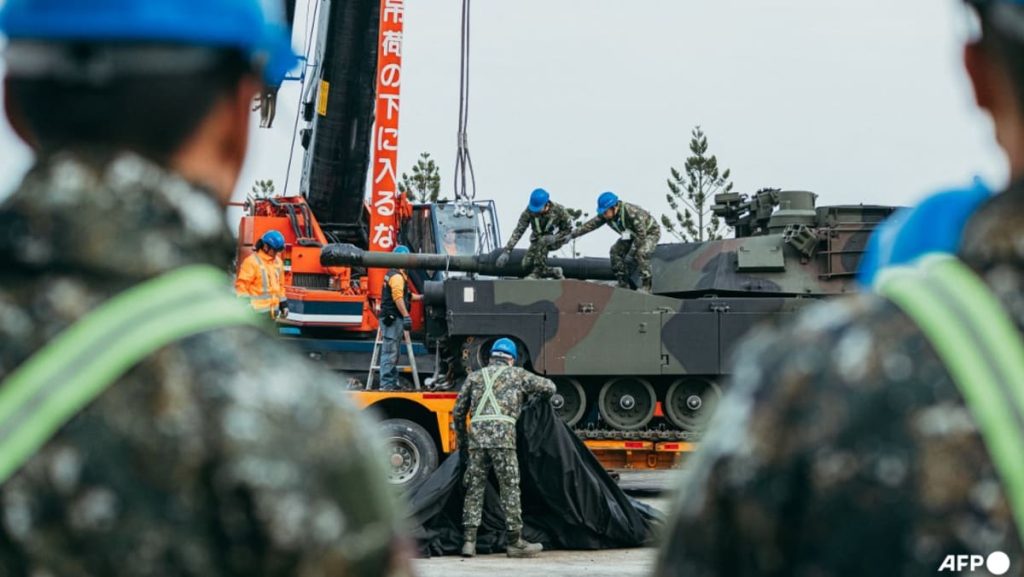The escalating tension between the United States and China over Taiwan reached a new crescendo with the recent announcement of US military aid and arms sales to the island nation. China vehemently denounced the move, issuing stern warnings against what it perceives as provocative actions jeopardizing regional stability. The US, on the other hand, maintains that the assistance is intended to bolster Taiwan’s self-defense capabilities and deter potential aggression from China, which claims the island as its own territory. This delicate geopolitical balancing act continues to fuel anxieties in the region and underscores the complex relationship between the two global powers.
The latest tranche of US military assistance, authorized by President Biden, earmarks up to $571 million for Taiwan. This package encompasses a range of defense materials and services, including military education and training programs, designed to enhance Taiwan’s defensive posture. This follows a similar allocation of $567 million approved just a few months prior, highlighting the ongoing commitment of the US to bolster Taiwan’s security. Parallel to this aid package, the Defense Department also greenlit military sales valued at $295 million, which includes tactical radio systems and gun mounts, further bolstering Taiwan’s arsenal against potential threats.
China’s reaction to these developments has been swift and forceful. The Chinese Foreign Ministry condemned the US actions, accusing Washington of “playing with fire” and escalating tensions in the Taiwan Strait. Beijing views the arms sales as a direct challenge to its sovereignty claims over Taiwan, reiterating its unwavering stance that the island is an integral part of China and must eventually be brought under its control. The Chinese government has repeatedly warned the US against supplying arms to Taiwan, arguing that such actions undermine peace and stability in the region and embolden pro-independence sentiments within Taiwan.
Taiwan, a self-governed democracy of 23 million people, has welcomed the US support. The Taiwanese government views the military assistance as crucial for maintaining its defense capabilities and deterring potential Chinese aggression. The arms sales and aid packages are seen as tangible demonstrations of the US commitment to Taiwan’s security and a reaffirmation of the longstanding relationship between the two nations. Taiwan’s Foreign Ministry has expressed gratitude for the continued US support, emphasizing its importance in maintaining peace and stability in the face of growing pressure from China.
The ongoing arms sales and military assistance to Taiwan represent a key element of the US strategy to manage its complex relationship with China. The US walks a tightrope, seeking to support Taiwan’s self-defense without provoking a direct military confrontation with China. This balancing act involves providing sufficient military capabilities to deter Chinese aggression while simultaneously maintaining open channels of communication with Beijing to prevent misunderstandings and escalation. The US government maintains that its actions are consistent with the longstanding “One China” policy, which acknowledges but does not endorse China’s claim to Taiwan.
The delicate situation in the Taiwan Strait remains a significant flashpoint in the US-China relationship. The recent US military assistance and arms sales to Taiwan have further exacerbated tensions, prompting strong reactions from Beijing and highlighting the potential for miscalculation and escalation. The future stability of the region hinges on the ability of both the US and China to manage their differences and navigate this complex geopolitical landscape with prudence and restraint. The ongoing arms sales and aid packages underscore the deep commitment of the US to Taiwan’s security, while simultaneously highlighting the challenges in maintaining peace and stability in one of the world’s most sensitive geopolitical hotspots.

